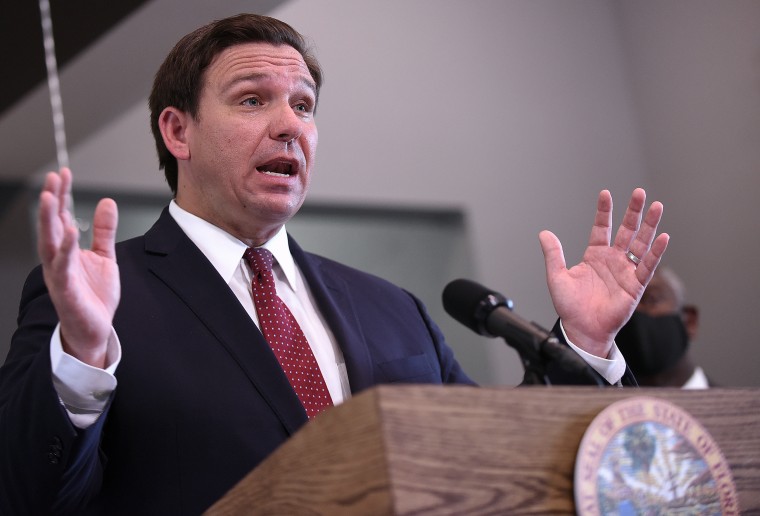Sen. Rob Portman (R-Ohio) told ABC News yesterday morning that the Republican Party's "policies" are "even more popular" than Donald Trump, which is why the GOP "did pretty well" while losing control of Congress and the White House. He didn't appear to be kidding.
In the same interview, the retiring Ohio senator added that "most people are supportive" of the Republican Party's agenda. Around the same time, Sen. Bill Cassidy (R-La.) appeared on CNN and made similar comments, insisting that the party's future is bright because "our policies are great."
It's as if the GOP became a post-policy party, and some of its members failed to notice.
Not surprisingly, since I wrote a book about the Republican Party abandoning its role as a governing party, giving up on taking policymaking and problem-solving seriously, Portman's and Cassidy's comments stood out for me. Indeed, it was almost amusing to hear the prominent GOP senators talking up their party's agenda six months after the Republican Party decided not to even bother writing a platform -- a first since 1854.
But just as important was the timing: as Portman and Cassidy stressed the importance of their party's policies, the Conservative Political Action Conference (CPAC) was unfolding, leaving little doubt that Republicans don't really have any policies. As the New York Times noted:
CPAC in past years has served, at minimum, as a forum for conservatives to unite in opposition to a Democratic policy agenda. But most speakers over the weekend won applause by channeling the preoccupation with personality over policy that animated the party during Mr. Trump's presidency. The result was an event in which conservatives signaled their lack of interest not just in mobilizing against Mr. Biden's policies, but also in debating the finer points of their own.
Gov. Ron DeSantis (R) even chided those who prefer to "sit around and have academic debates about conservative policy" -- as if such substantive discussions are unworthy of policymakers' time.
The larger trend became unmistakable. Politico noted, "Nearly four months after the election and one month into Joe Biden's presidency, the politics of grievance has become the near-singular organizing principle of the post-Trump GOP." Karen Tumulty added, "CPAC has fallen a long way from the days when actual policy ideas were discussed there. But it remains a reasonable barometer of the state of the GOP id."
Attendees heard plenty of ridiculous rhetoric about the integrity of the 2020 presidential election. There were occasional complaints about Twitter. Several speakers seemed eager to talk about Potato Head dolls, Muppets disclaimers, and "cancel culture."
But in the midst of major policy challenges facing the nation, Republicans remained wholly indifferent to the substance of governing, embracing the post-policy label with both arms.
There was little to suggest assembled conservatives minded the GOP prioritizing grievances over problem-solving, but the message for the broader electorate couldn't have been clearer: those looking for officials who are ready and eager to tackle national challenges should look elsewhere.
